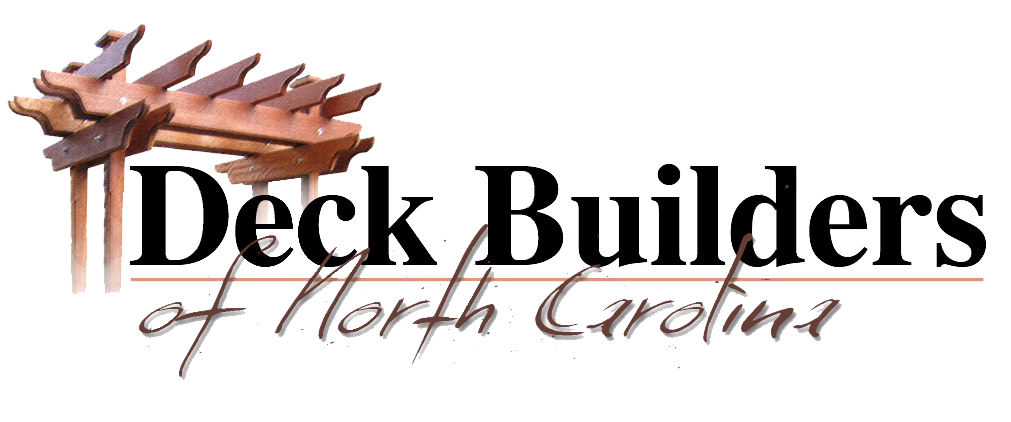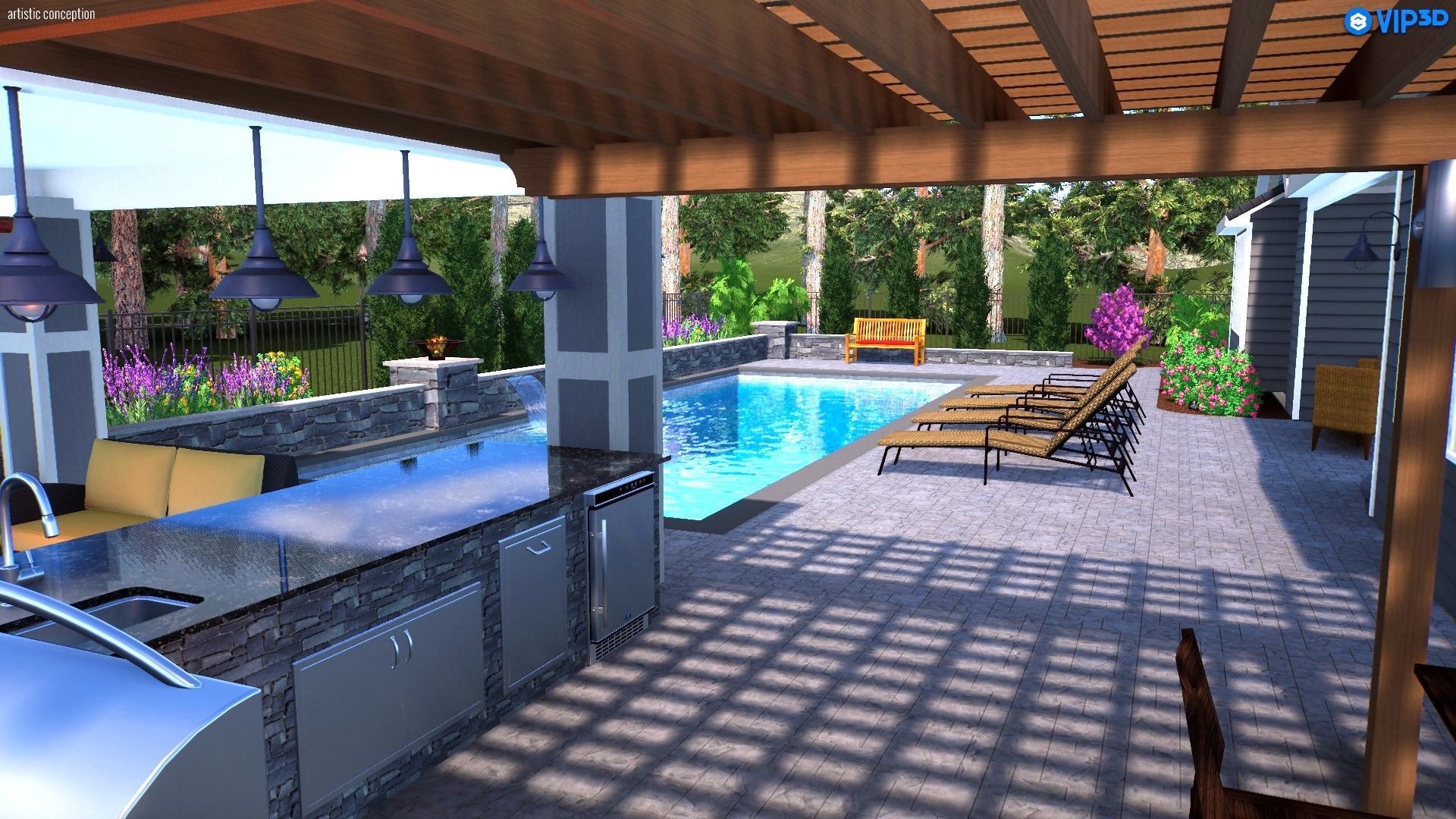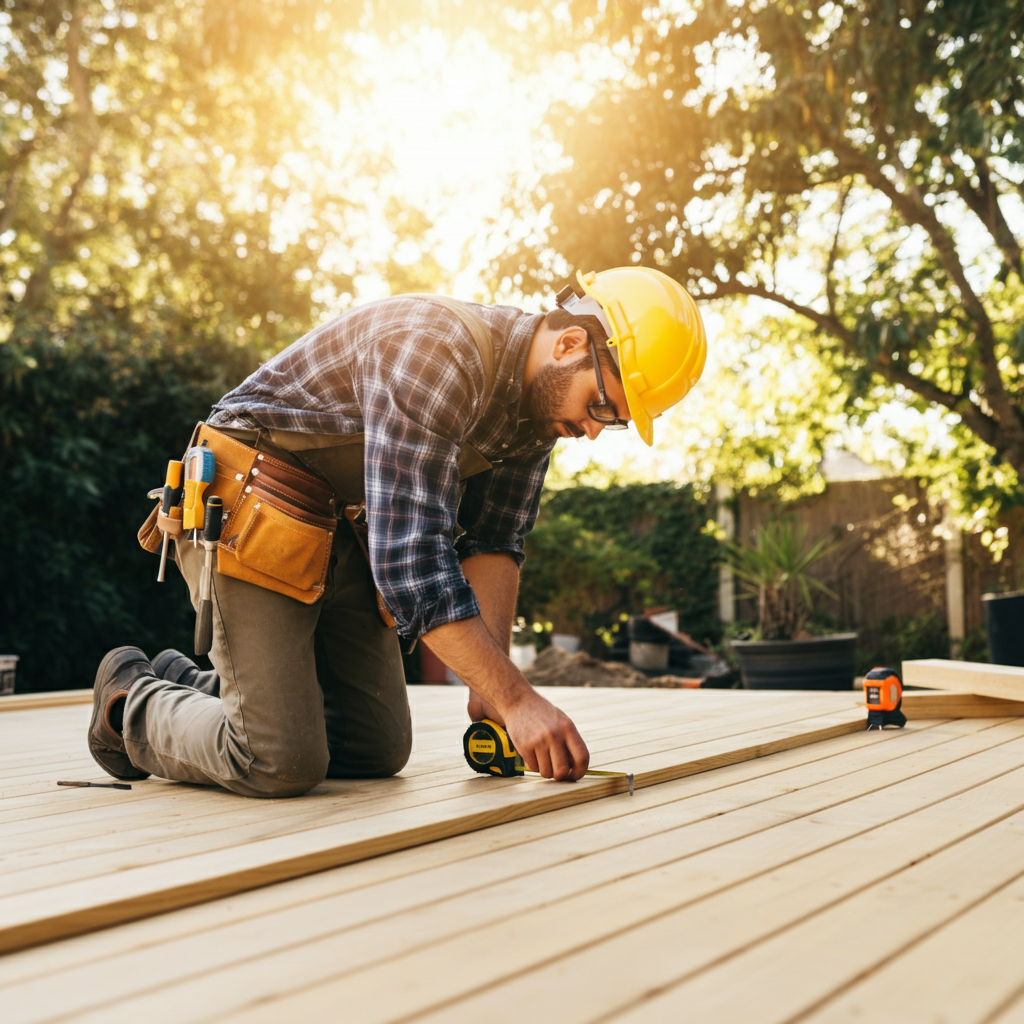Types of Decking Materials
A Practical Guide to Deck Installation
Choosing the right decking material is central to a successful deck installation. The best option depends on your budget, climate, desired appearance, and maintenance goals. This guide outlines the most common materials—pressure-treated wood, cedar and redwood, tropical hardwoods, composite, PVC, and aluminum—so you can make an informed decision.
Key Factors to Consider Before You Choose
- Budget and lifecycle cost (material price, labor, maintenance, and replacement timeline)
- Local climate (UV exposure, humidity, freeze–thaw cycles, rainfall, coastal conditions)
- Maintenance tolerance (staining, sealing, cleaning schedule)
- Structural needs (span ratings, joist spacing, load requirements)
- Appearance (grain pattern, color stability, fade resistance)
- Warranty and code compliance (fire ratings, slip resistance, permitted uses)
Pressure-Treated (PT) Wood
- Composition: Typically, Southern Yellow Pine, treated to resist rot and insects.
- Cost: Low initial cost; economical for large projects.
- Pros:
- Widely available and budget-friendly
- Strong structural performance
- Can be stained or painted to match the home’s design
- Cons:
- Requires annual to biannual sealing/staining
- Prone to checking, warping, and splinters over time
- Color fades; higher long-term maintenance
Cedar & Redwood
- Composition: Naturally rot- and insect-resistant softwoods.
- Cost: Moderate; more than PT wood, less than hardwoods and many composites.
- Pros:
- Attractive natural color and grain
- Cooler underfoot than many synthetics
- Easier to work with and lighter weight
- Cons:
- Requires periodic sealing to maintain its color
- Softer surface can dent or scratch
- Availability and price vary by region
Tropical Hardwoods (e.g., Ipe, Cumaru, Tigerwood)
- Composition: Very dense, durable hardwoods.
- Cost: High material cost; pre-drilling and specialized fasteners increase labor.
- Pros:
- Exceptional longevity and rot resistance
- High strength and scratch resistance
- Premium appearance; can be left to weather to silver patina
- Cons:
- Hard to cut and fasten; higher installation cost
- Requires UV oil to maintain rich color
- Can be heavy; consider substructure design
Composite Decking
- Composition: Wood fibers and recycled plastics, capped or uncapped.
- Cost: Mid-to-high; varies by brand and cap technology.
- Pros:
- Low maintenance (no staining or sealing)
- Good resistance to rot, insects, and fading (especially capped)
- Consistent color and texture; wide style and color options
- Cons:
- Can retain heat in full sun
- Heavier than wood; follow the manufacturer's span/joist spacing
- Quality varies; choose reputable brands and caps
PVC (Vinyl) Decking
- Composition: 100% synthetic (no wood fiber), often fully capped.
- Cost: Mid-to-high, similar to premium composite.
- Pros:
- Excellent moisture, mold, and insect resistance
- Very low maintenance; easy to clean
- Lightweight; strong warranties are common
- Cons:
- Can feel less “natural” than wood
- May expand/contract with temperature swings
- Heat buildup possible in dark colors
Aluminum Decking
- Composition: Powder-coated or anodized aluminum planks; often interlocking and water-shedding.
- Cost: High upfront material cost.
- Pros:
- Extremely durable; won’t rot, warp, or burn
- Fire-resistant and slip-resistant finishes available
- Stays relatively cool; great for sun-exposed decks
- Cons:
- Industrial or modern appearance may not suit all styles
- Higher material price; limited color options
Choosing the Right Material for Your project:
- Lower upfront cost: Pressure-treated wood
- Balanced cost and aesthetics: Cedar or redwood
- Premium performance and longevity: Tropical hardwoods or aluminum
- Minimal maintenance required: PVC or high-quality capped composite
- Coastal or wet climates: PVC, composite with high moisture resistance, or aluminum
- Fire-prone areas (check codes): Aluminum or specific fire-rated composites
Ready to get Started?
Selecting the right decking material at the beginning of your project is key to streamlining your deck installation, minimizing maintenance, and maximizing long-term value. If you need help comparing products or planning your build, turn to the team at Deck Builders of North Carolina.
Whether you’re eager to increase your entertainment space or create a relaxing place to unwind, we will design the perfect deck installation for your needs and budget. Contact a member of our team today to book an appointment. We look forward to hearing from you!


